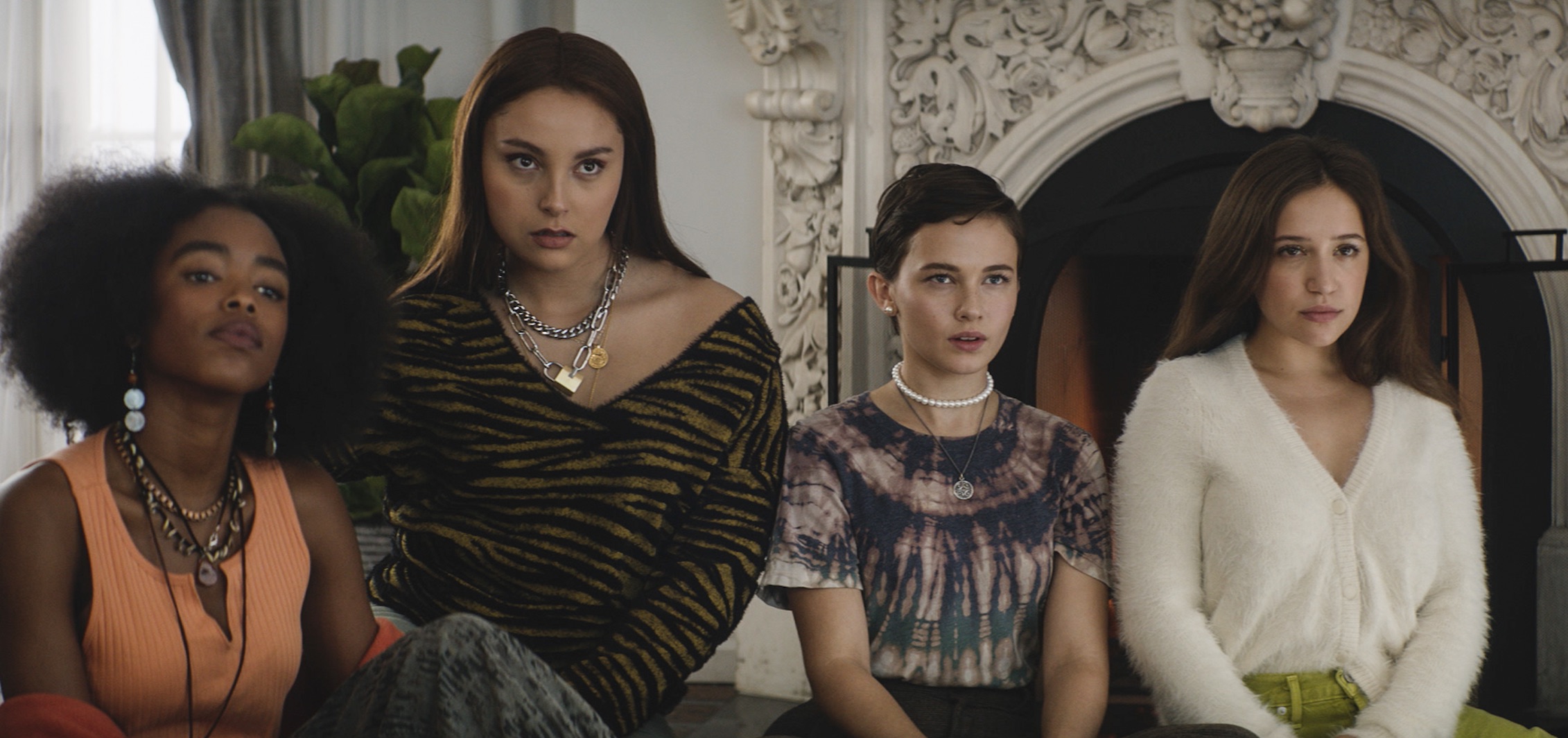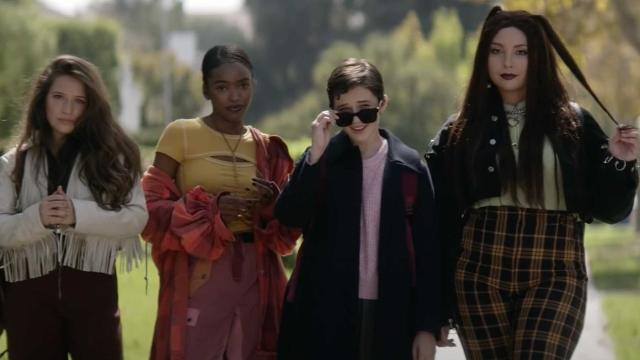The Craft has become a cult classic thanks to its indelible portrayal of misfit teen witches gone wild, with an appealing dose of 1990s nostalgia baked in. The Craft: Legacy aims to capture the spirit of the original, and while it definitely succeeds in putting a modern spin on the story, it comes up lacking in most other ways.
Before we go any further, we won’t be spoiling any of The Craft: Legacy’s big reveals in this review, as much as we’re dying to talk about them. In addition, it would be unfair to writer-director Zoe Lister-Jones to review her continuation point-by-point against the original, especially considering how different the two films end up being. However, a certain amount of comparison is going to be unavoidable.
The two films start out very similarly, with Lily (Devs’ Cailee Spaeny) nervously facing a new chapter in her life. You can’t blame her for being anxious — she’s been uprooted so that her mum, Helen (Michelle Monaghan), can shack up with Adam (David Duchovny) after a whirlwind long-distance romance. Adam has a lovely home with a huge attic bedroom for Lily, but he also has three sons who don’t seem thrilled to meet her, and his success springs from self-help books and lectures where he holds forth on topics like “the crisis of masculinity.” This is worrisome for Lily, and an early sign that Legacy is going to break out the sledgehammer straightaway instead of wasting its time building themes with nuance.

Fortunately, Lily almost immediately makes friends at her new school, thanks to a trio of girls — Lourdes (Zoe Luna), Tabby (Lovie Simon), and Frankie (Gideon Adlon) — who are hoping to add a fourth witch to their budding coven. They decide Lily is the one when she’s able to hear them whispering telepathically, something that doesn’t freak her out as much as you might think it would. That sets a baseline for the magic throughout Legacy, which seems to come effortlessly for all once Lily joins their group — manifested in variously useful talents like freezing time, shooting flames out of fingers, making people move against their will, and enhancing one’s eye make-up with extra-fancy sparkles.
Since everyone’s pretty cute and confident to begin with, the makeover equivalent here comes when the girls magically transform the misogynistic school bully into “woke Timmy,” a super self-aware, thoughtful, progressive-minded, La Croix-drinking dude (props to actor Nicholas Galitzine for nailing both sides of this character). Even the “light as a feather, stiff as a board” ritual — in the original film, a key moment for the witches to flex their newfound abilities — gets relegated to being part of a joyful montage here. Magic is fun, y’all!
Except, well, when it isn’t, though that inevitable lesson comes with a twist. Something that’s always bothered me about 1996’s The Craft is the way the movie’s ostensibly feminist message of young women unlocking their powers gets muddied by the fact that they’re worshiping “Manon,” a deity who’s described as basically Mother Nature but is clearly gendered as male. Maybe that’s why they all turn on each other in the end.
[referenced id=”1516346″ url=”https://gizmodo.com.au/2020/10/this-book-about-a-high-school-coven-understands-just-how-ridiculous-teens-can-be/” thumb=”https://gizmodo.com.au/wp-content/uploads/2020/10/04/cyhzlznkvop8rjbzbshq-300×168.jpg” title=”This Book About a High School Coven Understands Just How Ridiculous Teens Can Be” excerpt=”The opening chapter of Hannah Abigail Clarke’s The Scapegracers is a little rough. It starts with a group of girls gathering in the middle of a party to do some magic and freak everyone out. Then the narrator breaks off to do more magic with a girl she’s only just…”]
By contrast, Legacy — which is very focused on its “air, fire, water, earth” elemental chants — keeps those bonds tight; the friendships are strained only when Lily casts a selfish solo spell, not meaning anything malicious by it, but violating an agreement between the girls. “If we’re not going to be using our power responsibly, then we shouldn’t be using it at all,” Tabby admonishes her. That’s common sense, but let’s be honest — it’s also kinda boring?
Sisterhood is awesome, and the way the girls end up working together to set things right is, too. But there’s nothing here that replicates the chaotic energy of the first film’s Nancy Downs — no shoplifting in the pagan boutique, no beachside rituals held during lightning storms, no cruel “glamour” hallucinations, nobody flying around screaming their head off. We barely get to know the other girls because everything is so focused on Lily (a shame, since they all deliver appealing performances), and all things considered the stakes feel relatively low. The most shocking moment in the film happens totally offscreen, so we only hear about it after the fact, which lessens its impact.
Speaking of Nancy, the photo of Fairuza Balk that’s prominently glimpsed in the film’s trailer is nowhere to be found in the actual movie, but there is a very clear villain — can you guess who it is? Acceptable answers are “person who has a snake slither across their front yard in the movie’s first five minutes” and “the patriarchy.” Toxic masculinity is certainly a serious real-world problem, as well as something that young people should be encouraged to recognise and fight against. This isn’t the only recent horror film to address it; the Black Christmas remake also comes to mind. But its use here as what amounts to a plot device is not particularly interesting, nor is it all that memorable — kind of like The Craft: Legacy itself, unfortunately.
